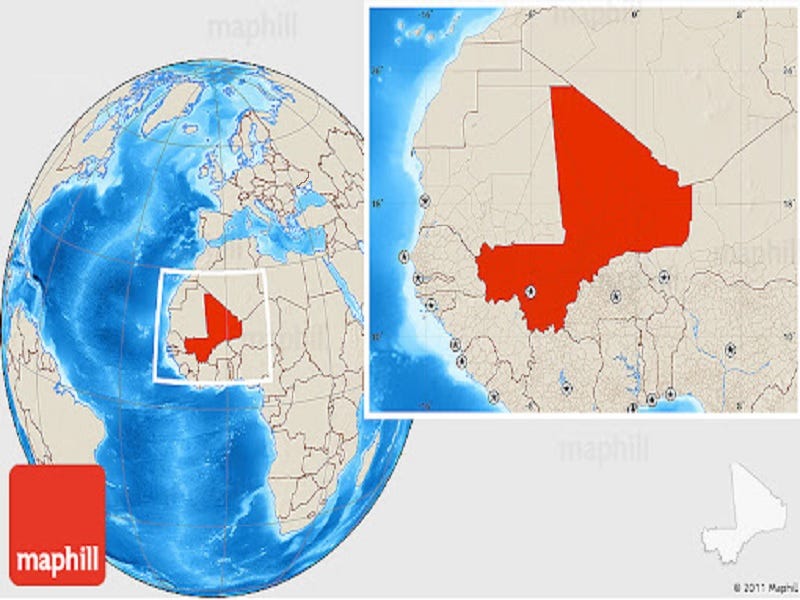The Tuareg Conflict is now considered to be the New Cold War’s latest proxy war.
Russia’s rebranded Wagner suffered a devastating ambush by Tuareg rebels in Mali last weekend. The details remain unconfirmed, but the group’s losses are considered to be their largest since 2018’s “Disaster in Deir ez-Zor”. What just happened was therefore no small matter. The present piece will draw attention to five of the most likely forthcoming developments, but before doing so, the reader is requested to at least skim through these five background briefings to bring themselves up to speed:
* 15 February 2023: “Russia’s Newfound Appeal To African Countries Is Actually Quite Easy To Explain”
* 8 May 2023: “American Officials Told Politico Their Plan For Waging Hybrid War Against Wagner In Africa”
* 28 July 2024: “Russia Must Think Carefully About Its Next Moves In Mali After This Weekend’s Reported Ambush”
* 29 July 2024: “The Tuareg Conflict Is Much More Complex Than Casual Observers Might Imagine”
* 30 July 2024: “Did Westerners, Ukrainians, And Islamists Help Tuareg Rebels Ambush Wagner In Mali?”
In brief, Wagner serves as the tip of Russia’s “Democratic Security” spear in Africa, which refers to the wide range of counter-Hybrid Warfare measures that help ensure the security of its partners’ national models of democracy. The company is speculated to receive privileged resource and other contracts in exchange for their services. Last weekend’s ambush drew attention to the complexities of Mali’s Tuareg Conflict as well as its role in the New Cold War.
----------
1. More Intense Western Information Warfare Is Expected
Newsweek’s pieces about how “Moscow's Protection Now 'More Difficult to Sell' after Mali Disaster” and “Russian Defense Officials 'Gloating' Over Wagner Group's Defeat in Mali” are typical of the information warfare products that are expected to proliferate in the aftermath of last weekend’s ambush. Their goal is to discredit Russia’s Wagner-led “Democratic Security” operations in Africa together with widening divisions between that group and the Defense Ministry in the hopes of provoking another mutiny.
2. Russia’s Perception Of The Tuareg Conflict Will Change
The previously cited evidence in support of the claim that the Tuareg rebels were backed to an unclear extent by a combination of Westerners, Ukrainians, and Islamists will lead to Russia taking Mali’s Tuareg Conflict much more seriously after beginning to consider it to be the New Cold War’s latest proxy war. Accordingly, scaling back its unconventional forces there isn’t a politically feasible option in this context, with the immediate priority being to neutralize this new security threat to the Saharan-Sahelian region.
3. Its Tactics Will Therefore Also Change To Prevent Another Ambush
Wagner is less likely to play a significant frontline role in the Malian Armed Forces’ anti-rebel operations after what just happened, instead “leading from behind” through more effective training of their local partners and an increased reliance on ranged attacks like airstrikes, drones, and artillery. While retributive attacks are likely in the coming future in order to improve morale, it’ll probably take a little bit more time before Wagner puts the aforesaid tactics to use in carrying out another major operation.
4. The Russian Foreign Ministry Will Pay More Attention To This Conflict
The Tuareg Conflict’s root causes closely resemble the Syrian Kurdish one that the Russian Foreign Ministry has (thus far unsuccessfully) sought to resolve so it therefore follows that they’re also expected to try their hand at resolving this one too. The new regional security threat posed by Western, Ukrainian, and Islamist backing of the latest Tuareg rebellion can only be defeated by military means, but without an accompanying and truly fair political solution, more such rounds of unrest will inevitably follow.
5. More Countries Could Get Involved In This Proxy War
Most proxy wars tend to involve more players with time, and the New Cold War’s Tuareg one likely won’t be an exception. Algeria could extend meaningful support to the rebels for the reasons explained in the earlier hyperlinked analysis about the conflict’s complexity, which also mentions the possibility of Mali contracting Turkish PMCs if Russia’s fail to halt the rebel advance. It’s too early to predict exactly how this proxy war will evolve except that its number of players will likely grow and its dynamics will change.
----------
The most important consequence of the devastating ambush that Wagner just suffered in Mali is that it transformed the Tuareg Conflict into the New Cold War’s latest proxy war. Western information warfare is correspondingly set to intensify as Russia changes its tactics in preparation of a major operation to that’s meant to show its myriad opponents that it won’t be defeated. In parallel with this, the conflict is expected to grow to include more players, such as the aforementioned two and the Sahelian Alliance.
About the latter, Mali’s Burkinabe and Nigerien allies could either provide military assistance to it and/or become embroiled in a truly regional conflict if Western-Ukrainian-Islamist nexus decides to attack by proxy them next. After all, they’re tempting targets since the West hates them for expelling its troops and could thus try to stretch their forces to the brink of collapse by giving support to their terrorist foes, which could be paired with fresh Color Revolution attempts in all three to gain back lost strategic ground.





The US Empire could also be trying to provoke Russia into sending more forces into the Sahel in order to trap them in a quagmire there. They love it when Russia is tied down in some never-ending guerilla war, you know.
My gut feeling is that the Tuareg are mostly interested in achieving and securing their autonomy - alliance with other interests will be for their own tribal interest and as such, absolutely temporary.